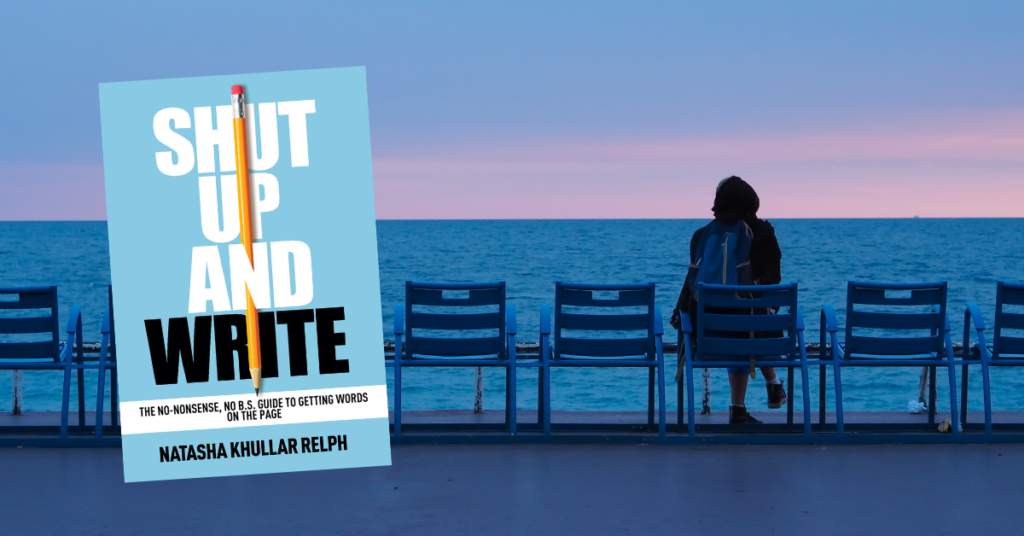
I like to joke that my first novel is about an Indian woman who has a mental breakdown and recovers, my second novel (which I’m now writing) is about an Indian woman who has a mental breakdown, but we’re not sure if she recovers, but not to worry because my third novel (which I’ve outlined) is completely different.
It’s about an Indian woman who marries an English man. He then has a mental breakdown and well… you get the picture.
I guess you could say I’m quite fascinated by mental health.
It has taken me ten years and four false starts to get to a point where I’ve been able to finally finish a novel and be confident about writing more. And when I think about what has made the difference, I have come to the conclusion that it is only now that I’ve finally, somehow, managed to get out of my own way.
It was not productivity that was my problem; it was life experience.
In my twenties, I tried to tell stories—often my own—but didn’t have the necessary distance or the life experience to be able to see clearly what I can now. It is no coincidence that I’m now able to write about mental breakdowns, ten years after I had my first, because it is finally now that I have clarity and context.
I have only recently acquired the vocabulary to even know how an anxiety disorder is different from bipolar disorder and how that, in turn, is different from psychosis.
Years ago, I wasn’t capable of vocalizing what I was experiencing, so I journaled daily instead. Those journals are now an extremely valuable resource for my work.
I hear often from writers who tell me they wish they had written when they were younger and are disheartened by the years they lost, and there is of course, some credibility to that. But there is a real advantage to being older as well. Because if you want to tell true stories, you have to first live.
It is the rare writer (I’m thinking of Zadie Smith here) who writes a brilliant book at age 21. I had the heart back then, as most of us do, but I didn’t have the skill, the vision, or the story. I hadn’t figured out the world enough to be able to explore it deeply in my work or take any kind of authoritative stand on it. Now, some parts of it anyway, I have.
In a month, I will be releasing my new book Shut Up and Write: The No-Nonsense, No B.S. Guide to Putting Words on the Page. I’m really excited about this book because I have become extremely interested in the idea that the way to be a productive writer is to get out of your own way. In my experience, most of us don’t know how to do that mostly because we don’t even realize that we are standing in our own way.
We turn up to the page—regularly—and find that the words don’t come. Then, feeling disheartened or blaming ourselves for our lack of productivity, effort, or talent, we leave and start visiting our writing less frequently.
If you keep meaning to write but don’t end up writing, here’s the problem: You’re giving yourself too many options.
In this book, I show you how to get rid of all the options, pick the elements that are necessary for your success and just train yourself to get the words written, whether you feel like it or not.
In other words: Shut Up. And Write.
Next week, I’m putting the book up for pre-order. I’m also putting together some very cool bonuses for early orders. And of course, I’ll tell you more about it as we get closer to publication date.
Stay tuned.
And keep getting those words written.